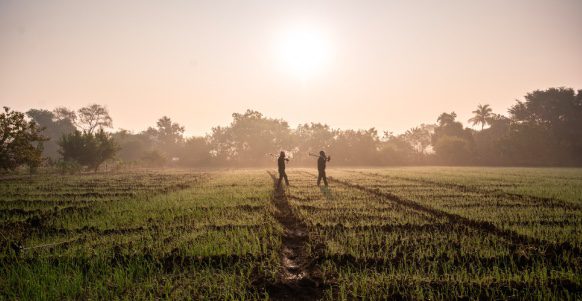
Illegal debt bondage infecting India’s labor force
NPR News relays the story of Shanta Bai, a farmworker in rural India, who was locked in a chicken coop for a week by her employer, along with other women, to ensure the loan she had received was repaid through her forced labor. Debt bondage is considered a type of forced labor because workers are often forced to work under exploitative terms and conditions, including violence, starvation, and in Shanta’s case, imprisonment in extremely inhumane conditions.
Repressive practices and unenforced laws lead to modern slavery
The practice of bonded labor in India dates back centuries and is held in place by what remains of caste hierarchy. The caste hierarchy was outlawed many years ago but tacitly still exists and prevents members of lower castes from being able to access education or find jobs that pay fair wages and are not exploitative. Bonded labor was also outlawed over 30 years ago, but it has not been effectively eliminated, especially in rural areas. According to the ILO, communities already marginalized by the caste system and living in poverty are particularly vulnerable to this form of modern slavery.
Jairam, Shanta’s husband, who was also held captive in a cow shed on the same property, said:
“All they fed us was a little rice and water, once a day, the place we were kept in was filthy. He also took away our phone so we couldn’t call for help.”
